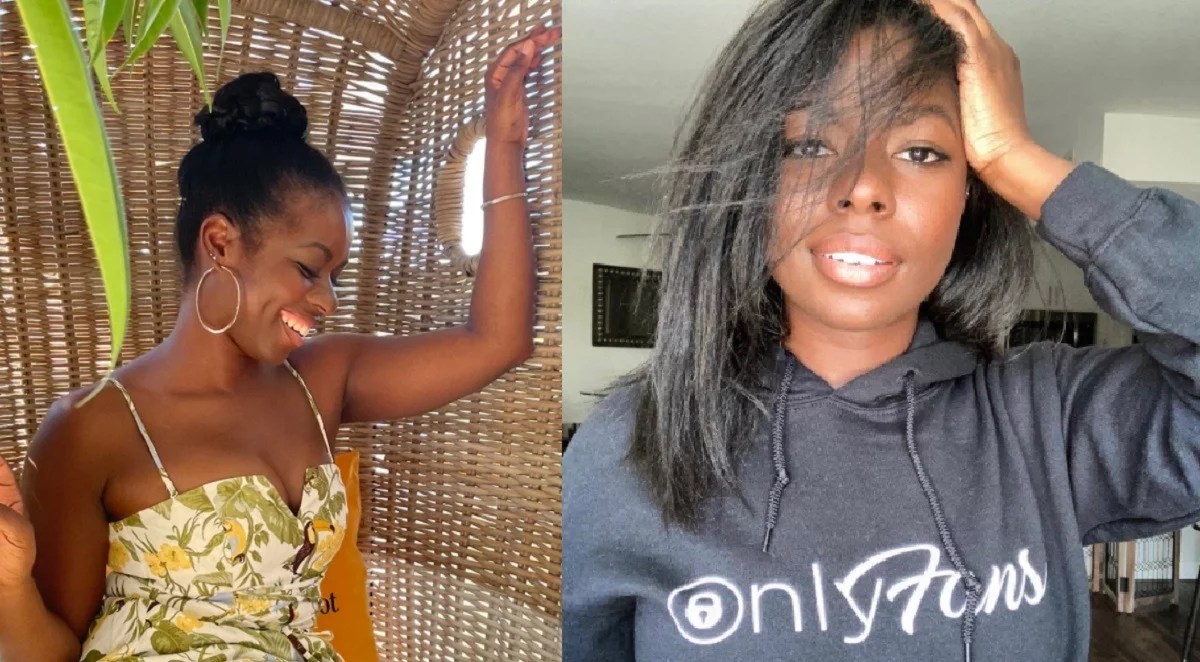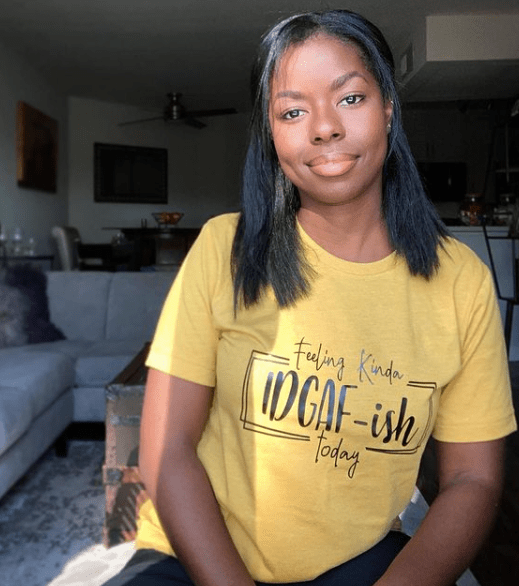
Camille Winbush OnlyFans Leaked: A Comprehensive Examination
The term "Camille Winbush OnlyFans leaked" refers to the unauthorized sharing of private and explicit content originally posted on the subscription-based platform OnlyFans by actress and singer Camille Winbush. In March 2023, several explicit photos and videos featuring Winbush were leaked online, quickly spreading across various social media platforms and websites.
This incident highlights the growing prevalence of online privacy breaches and the need for individuals to exercise caution when sharing personal content online. It also raises questions about the ethics of sharing leaked content without the consent of the individual depicted. Furthermore, the incident underscores the importance of internet safety and the need for users to protect their online accounts and personal information.
Moving forward, this article will delve into the broader implications of the Camille Winbush OnlyFans leak, exploring its impact on Winbush's career, the legal and ethical considerations surrounding the sharing of leaked content, and the role of social media platforms in addressing such incidents.
camille winbush only fans leaked
The unauthorized sharing of Camille Winbush's OnlyFans content raises several key points that warrant examination. These points encompass the definition and understanding of the incident, its implications for Winbush and others, and the broader societal and ethical considerations it entails.
- Privacy Breach: Unauthorized sharing of private content.
- Consent Violation: Dissemination of content without subject's consent.
- Image-Based Abuse: Non-consensual sharing of intimate images.
- Cybersecurity: Importance of online security measures.
- Legal and Ethical Issues: Copyright infringement and ethical considerations.
These points collectively highlight the complex interplay between personal privacy, digital rights, and online safety. The incident involving Camille Winbush serves as an example of the potential consequences of online privacy breaches and the urgent need for individuals to take proactive measures to protect their personal information and digital content. Furthermore, it brings to the forefront the role of social media platforms and online communities in addressing the non-consensual sharing of explicit content and image-based abuse.
Privacy Breach
The unauthorized sharing of Camille Winbush's OnlyFans content constitutes a significant breach of privacy, with far-reaching implications for the individual's reputation, sense of security, and control over their personal information. This privacy breach encompasses several key facets:
- Non-Consensual Sharing: The sharing of explicit content without the subject's consent violates their right to privacy and autonomy over their own image and personal information.
- Dissemination of Intimate Content: The unauthorized distribution of private and intimate content can cause significant emotional distress, humiliation, and reputational damage to the individual depicted.
- Violation of Platform Terms: By sharing content from OnlyFans without authorization, the individual responsible breaches the platform's terms of service, which prohibit the unauthorized distribution of user-generated content.
- Potential Legal Consequences: Depending on the jurisdiction, the unauthorized sharing of private content may constitute a criminal offense, such as cyberstalking or distribution of intimate images without consent.
These facets collectively highlight the severity of the privacy breach in the Camille Winbush OnlyFans leak and underscore the need for individuals to take proactive measures to protect their personal information and digital content. Furthermore, they raise important questions about the ethical and legal implications of sharing leaked content without the consent of the individual depicted.
Consent Violation
The unauthorized sharing of Camille Winbush's OnlyFans content epitomizes the violation of consent and the grave consequences it entails. This privacy breach serves as a prime example of how the dissemination of content without the subject's consent can cause irreparable harm to the individual's reputation, sense of security, and control over their personal information.
In the case of Camille Winbush, the leaked content has been widely shared across social media platforms and websites, leading to intense public scrutiny, humiliation, and emotional distress for the actress and singer. This non-consensual sharing of explicit content constitutes a clear violation of Winbush's privacy rights and has had a detrimental impact on her personal and professional life.
Moreover, the dissemination of Winbush's OnlyFans content without her consent raises significant legal and ethical concerns. Depending on the jurisdiction, the unauthorized sharing of private content may be considered a criminal offense, such as cyberstalking or distribution of intimate images without consent. Furthermore, this incident highlights the urgent need for social media platforms and online communities to implement robust measures to combat the non-consensual sharing of explicit content and protect users' privacy.
Understanding the significance of consent violation in the context of the Camille Winbush OnlyFans leak has practical implications for various stakeholders. For individuals, it underscores the importance of exercising caution when sharing personal content online and taking proactive steps to protect their digital privacy. For social media platforms, it emphasizes the necessity of developing and enforcing policies that prohibit the unauthorized sharing of user-generated content and provide mechanisms for users to report and address instances of consent violation.
In conclusion, the Camille Winbush OnlyFans leak serves as a stark reminder of the devastating consequences of consent violation in the digital age. Addressing this issue requires a multi-faceted approach involving legal, ethical, and technological measures, as well as a collective effort from individuals, social media platforms, and society at large to respect and protect the privacy of all.
Image-Based Abuse
The unauthorized sharing of Camille Winbush's OnlyFans content constitutes a form of image-based abuse, which involves the non-consensual sharing of intimate images or videos. This type of abuse can have severe and long-lasting consequences for the individual depicted, including emotional distress, reputational damage, and even physical harm.
- Consent Violation: The sharing of intimate images without the subject's consent is a clear violation of their privacy rights and autonomy over their own image and personal information.
- Emotional Distress: The unauthorized dissemination of private and intimate content can cause significant emotional distress, humiliation, and anxiety for the individual depicted.
- Reputational Damage: The sharing of explicit content without consent can damage an individual's reputation, affecting their personal and professional life.
- Potential Legal Consequences: Depending on the jurisdiction, the unauthorized sharing of intimate images may constitute a criminal offense, such as cyberstalking or distribution of intimate images without consent.
The image-based abuse experienced by Camille Winbush highlights the need for increased awareness and action to address this growing problem. It is crucial for individuals to understand the potential consequences of sharing intimate content online and to take proactive steps to protect their privacy. Additionally, social media platforms and online communities must implement robust measures to combat the non-consensual sharing of explicit content and provide mechanisms for users to report and address instances of image-based abuse.
Cybersecurity
The unauthorized sharing of Camille Winbush's OnlyFans content underscores the critical importance of cybersecurity and the need for individuals to take proactive measures to protect their personal information and digital content. By understanding and implementing robust cybersecurity practices, individuals can minimize the risk of falling victim to privacy breaches, unauthorized access to their accounts, and the non-consensual sharing of private content.
- Strong Passwords: Creating and using strong, unique passwords for online accounts is essential to prevent unauthorized access. Avoid using easily guessable passwords or reusing the same password across multiple accounts.
- Two-Factor Authentication: Enabling two-factor authentication (2FA) adds an extra layer of security to online accounts by requiring a second form of identification, such as a code sent to a mobile phone, in addition to a password.
- Secure Internet Connection: Using a virtual private network (VPN) or a secure Wi-Fi connection when accessing sensitive information online can help protect personal data from being intercepted by malicious actors.
- Regular Software Updates: Keeping software and applications updated with the latest security patches ensures that known vulnerabilities are addressed and potential entry points for cyberattacks are minimized.
By implementing these cybersecurity measures, individuals can significantly reduce the risk of their personal information being compromised and minimize the likelihood of falling victim to privacy breaches like the one experienced by Camille Winbush. Additionally, social media platforms and online communities have a responsibility to invest in robust security measures and user education to prevent the unauthorized sharing of private content and protect the privacy of their users.
Legal and Ethical Issues
The unauthorized sharing of Camille Winbush's OnlyFans content raises a multitude of legal and ethical concerns that are deeply intertwined with the incident. Understanding these issues is crucial for addressing the implications of the leak and developing effective strategies to prevent similar incidents in the future.
Copyright Infringement: The unauthorized sharing of Camille Winbush's OnlyFans content constitutes a clear violation of copyright law. OnlyFans creators own the copyright to the content they post on the platform, and unauthorized distribution of this content without their consent infringes on their exclusive rights. Copyright infringement can have serious legal consequences, including financial penalties and potential criminal charges.
Ethical Considerations: Beyond copyright infringement, the sharing of Camille Winbush's OnlyFans content also raises significant ethical concerns. The non-consensual distribution of intimate images without the subject's consent is a violation of privacy and can cause severe emotional distress and reputational damage. Additionally, the unauthorized sharing of such content contributes to a culture of objectification and exploitation, particularly when it comes to women and marginalized communities.
Real-Life Instances: The case of Camille Winbush is not an isolated incident. There have been numerous instances where private and explicit content shared on subscription-based platforms like OnlyFans has been leaked and distributed without the consent of the creators. These incidents highlight the urgent need for stronger legal protections and ethical guidelines to address the unauthorized sharing of intimate content online.
Practical Significance: Understanding the legal and ethical issues surrounding the unauthorized sharing of private content is crucial for developing effective strategies to prevent and address such incidents. Social media platforms and online communities need to implement robust policies and mechanisms to combat the non-consensual sharing of explicit content. Additionally, users need to be educated about the importance of respecting copyright laws and obtaining consent before sharing any type of personal or intimate content online.
Conclusion: The unauthorized sharing of Camille Winbush's OnlyFans content serves as a stark reminder of the complex interplay between legal and ethical issues in the digital age. Addressing these issues requires a multi-faceted approach involving legal reforms, ethical guidelines, technological interventions, and user education. Only by working together can we create a safer and more respectful online environment where individuals' privacy and autonomy are protected.
Frequently Asked Questions (FAQs)
This section aims to address common questions and concerns regarding the incident involving the unauthorized sharing of Camille Winbush's OnlyFans content.
Question 1: What is "Camille Winbush OnlyFans leaked"?
Answer: The term refers to the unauthorized sharing of private and explicit content originally posted on the subscription-based platform OnlyFans by actress and singer Camille Winbush.
Question 2: Why is this incident significant?
Answer: This incident highlights the growing prevalence of online privacy breaches and the need for individuals to exercise caution when sharing personal content online. It also raises questions about the ethics of sharing leaked content without the consent of the individual depicted.
Question 3: What are the legal implications of sharing leaked content?
Answer: Depending on the jurisdiction, sharing leaked content without consent may constitute a criminal offense, such as cyberstalking or distribution of intimate images without consent. Additionally, it may violate copyright laws, as the creators of the content own the exclusive rights to its distribution.
Question 4: What are the ethical concerns surrounding the sharing of leaked content?
Answer: Sharing leaked content without consent violates the individual's privacy and autonomy over their own image and personal information. It can also cause significant emotional distress, reputational damage, and contribute to a culture of objectification and exploitation.
Question 5: How can individuals protect themselves from online privacy breaches?
Answer: Individuals can protect their online privacy by using strong passwords, enabling two-factor authentication, being cautious about what personal information they share online, and keeping their software and applications updated with the latest security patches.
Question 6: What role do social media platforms play in addressing the sharing of leaked content?
Answer: Social media platforms have a responsibility to implement robust policies and mechanisms to prevent the unauthorized sharing of private content. They can also play a role in educating users about the importance of respecting copyright laws and obtaining consent before sharing any type of personal or intimate content online.
These FAQs provide insights into the legal, ethical, and societal implications of the Camille Winbush OnlyFans leak. The incident underscores the need for individuals, social media platforms, and society at large to take proactive steps to protect privacy and prevent the non-consensual sharing of explicit content online.
Moving forward, it is crucial to explore potential solutions and strategies to address this growing problem and create a safer online environment for all.
Dicas para se proteger de vazamentos de privacidade online
Esta seo fornece dicas prticas para ajudar indivduos a proteger sua privacidade online e prevenir vazamentos de contedo pessoal, como o incidente envolvendo Camille Winbush e seu contedo OnlyFans.
Dica 1: Use senhas fortes e exclusivas: Crie senhas fortes e exclusivas para todas as suas contas online, evitando usar a mesma senha em vrias contas.
Dica 2: Ative a autenticao de dois fatores (2FA): Sempre que possvel, ative a autenticao de dois fatores para adicionar uma camada extra de segurana s suas contas.
Dica 3: Seja cauteloso ao compartilhar informaes pessoais online: Pense cuidadosamente antes de compartilhar informaes pessoais, como seu endereo, nmero de telefone ou detalhes financeiros, em sites ou aplicativos.
Dica 4: Mantenha seu software e aplicativos atualizados: Mantenha seu sistema operacional, aplicativos e software atualizados com as ltimas correes de segurana para evitar vulnerabilidades que possam ser exploradas por invasores.
Dica 5: Use uma VPN ou conexo Wi-Fi segura: Use uma rede privada virtual (VPN) ou uma conexo Wi-Fi segura ao acessar informaes confidenciais online para proteger seus dados de interceptao.
Dica 6: Seja cuidadoso ao clicar em links ou abrir anexos: Esteja atento a e-mails, mensagens de texto ou links suspeitos. Evite clicar em links ou abrir anexos de remetentes desconhecidos.
Dica 7: Use aplicativos e servios confiveis: Ao fornecer informaes pessoais ou financeiras online, certifique-se de usar aplicativos e servios confiveis e respeitveis.
Dica 8: Denuncie vazamentos de privacidade imediatamente: Se voc suspeitar ou descobrir um vazamento de privacidade, denuncie imediatamente s autoridades apropriadas e plataforma onde o vazamento ocorreu.
Seguindo essas dicas, voc pode ajudar a proteger sua privacidade online e reduzir o risco de vazamentos de contedo pessoal.
Na prxima seo, exploraremos as implicaes legais e ticas mais amplas do compartilhamento de contedo vazado, bem como o papel das plataformas de mdia social e da legislao em abordar esse problema.
Conclusion
The exploration of the "camille winbush only fans leaked" incident in this article unveils several key ideas and findings. Firstly, the unauthorized sharing of private content raises significant legal and ethical concerns, including copyright infringement and violation of privacy rights. Secondly, the incident highlights the need for individuals to take proactive measures to protect their online privacy, such as using strong passwords and being cautious about sharing personal information. Thirdly, social media platforms have a responsibility to implement robust policies and mechanisms to prevent the unauthorized sharing of private content and protect users' privacy.
These findings are interconnected, as the legal and ethical implications of sharing leaked content emphasize the importance of online privacy protection. Social media platforms play a crucial role in addressing this issue, as they can implement measures to prevent unauthorized sharing and educate users about their responsibilities. Ultimately, the "camille winbush only fans leaked" incident serves as a reminder of the complex interplay between privacy, technology, and the law in the digital age.
As we move forward, it is essential to continue discussions and develop comprehensive strategies to address the problem of unauthorized sharing of private content online. This requires collaboration among individuals, social media platforms, and policymakers to create a safer and more respectful online environment for all.
Mrs poindexter only fans leaked
Jazmen jafar only fans leaks
Danielley ayala only fans leaked

Camille Winbush has responded to OnlyFans leak to shut down haters

Vanessa aka Camille Winbush ex Tape and OnlyFans Photos Leak then

OnlyFans Officially Drops Porn Ban theJasmineBRAND
ncG1vNJzZminnqHGp63NrGWsnp9ne6W1xqKrmqSfmLKiutKpmJydo2OwsLmOnJimoZyhsm7DyKeZrquYYryvuNhmnZqmo2K5pq3KnptnoKSiuQ%3D%3D